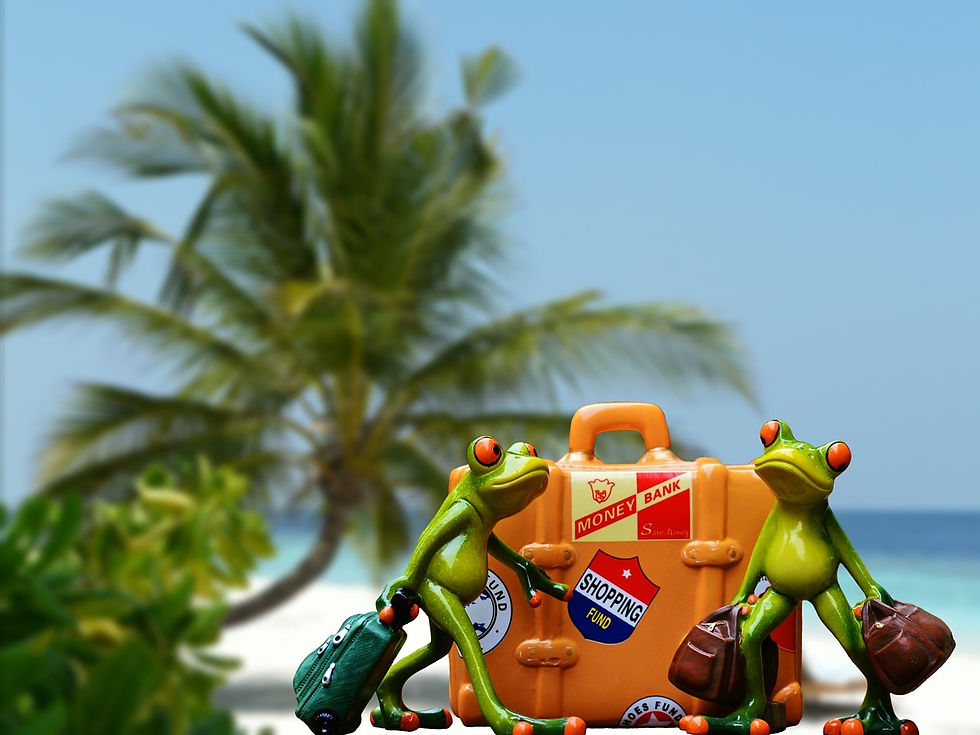Language barriers in South Africa: Do you have to speak Afrikaans or Xhosa?
- relocapewebsite
- Jun 26, 2025
- 3 min read

Moving to Cape Town is an exciting adventure for many – whether for work, family reasons, or out of a love of nature and culture. But even during the preparation phase, many newcomers face a key question: How will I cope with everyday language skills? Is English sufficient – or should I also learn Afrikaans or Xhosa?
In this article, we give you a practical overview of the language situation in Cape Town – and show when language skills beyond English are really helpful.
1. Cape Town – a city with many languages
Cape Town is located in the Western Cape province, where three languages are particularly present:
English
Afrikaans
Xhosa
Even though these languages are very different, they coexist in many areas of daily life. This creates diversity—but also raises questions about understanding and integration.
2. English: The everyday language for newcomers
First, the good news: If you speak English, you're well-equipped in Cape Town. English is not only the official language, but also the preferred form of communication in:
the economy
the education system
gastronomy and tourism
as well as for most administrative procedures
Whether you're shopping, in a restaurant or at the doctor's office, you can easily get through everyday life in Cape Town with English.
Especially in international districts such as City Bowl, Gardens, Sea Point or Claremont, English clearly dominates – even in private settings.
3. Afrikaans: The second language of many Capetonians
Afrikaans is widely spoken in the Western Cape and is spoken in Cape Town primarily by the so-called Coloured Community (people of mixed race) as well as by many white South Africans. In suburbs like Bellville, Parow, or Goodwood, Afrikaans may be more prevalent in everyday life than English.
For immigrants this means:
You don't have to know Afrikaans to get by.
But: A few basic skills or phrases (e.g. “Baie dankie” = Thank you very much) are well received – especially in friendly contacts, with tradespeople or in public authorities.
In some schools and kindergartens—especially outside the center—Afrikaans is also offered or required as a language of instruction. Parents should therefore inform themselves in advance about the language profile of the respective institution.
4. Xhosa: The language with the click
Xhosa is the native language of many people in the townships around Cape Town, such as Khayelitsha, Langa, or Gugulethu. Many employees in private households, security services, and the construction industry also speak Xhosa—usually in addition to English or Afrikaans.
Xhosa is a so-called tonal language with click sounds and is not easy for Europeans to learn – but it is a real sign of respect if you make at least a little effort.
Examples:
“Molo” – Hello
“Enkosi” – Thank you
Such small gestures can build bridges and help develop relationships on equal terms – especially in a country where language is closely interwoven with history and identity.
5. Linguistic reality in Cape Town: Practical, mixed, tolerant
Cape Town is a city of languages – but newcomers needn't fear language barriers. The reality is this:
✅ English is sufficient in almost all areas.
✅ Afrikaans is present in many everyday contexts, but is not a must.
✅ Xhosa plays a social rather than formal role – however, interest in this is highly appreciated.
Those who embrace Cape Town's multilingualism show openness – and are often rewarded with warmth and genuine interest.
Conclusion: English is enough – cultural openness is the key
§
You don't need to speak Afrikaans or Xhosa to make a good start in Cape Town. English is a door-opener – cultural curiosity is key. Whether at the supermarket, while looking for an apartment, or at work: with a friendly demeanor, respect for linguistic diversity, and a few phrases in the local idiom, you'll quickly find your way around Cape Town.
And those who stay long-term might even want to delve deeper—for example, with a beginner's course in Xhosa or a chat in Afrikaans with the neighbors. In Cape Town, this is not only possible, but part of everyday life.
Are you planning to move to Cape Town?
Our team will accompany you from visa to apartment – and also help you settle in linguistically and culturally: www.relocape.de





Comments